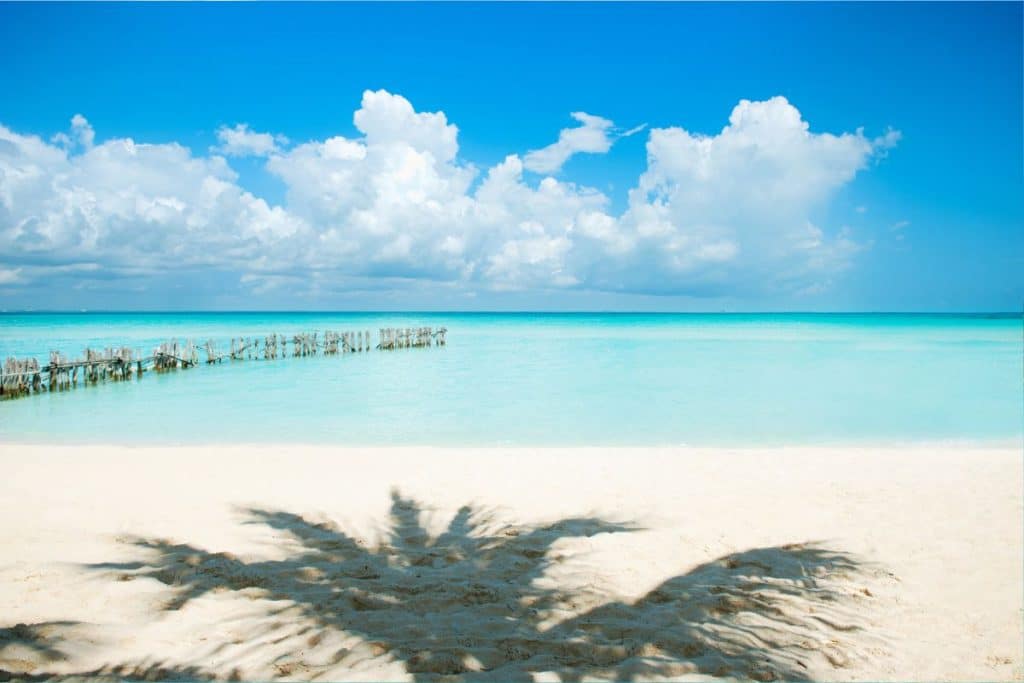According to the latest Sargassum forecast, the macroalgae should be present in low abundance on the beaches of the Mexican Caribbean during the first half of February. Although the forecast is favorable, it could change depending on weather conditions, especially ocean temperatures and currents.
Sargassum shouldn’t be a problem in the Mexican Caribbean for the majority of February, according to the Secretary for the Mexican Navy’s most current analysis . Beach vacationers can expect at least a few weeks of sargassum-free beaches, especially in northern Quintana Roo, a state in the Mexican Caribbean where sargassum concentrations are expected to be low.
Many organizations, including the Mexican Navy, regularly monitor the amount of sargassum on the beaches of the Mexican Caribbean. They also publish a long-term forecast of the total amount of sargassum expected to wash up on the coast in areas such as Cancun, Playa del Carmen, and Cozumel places that have previously struggled to manage significant quantities of the troublesome seaweed.
In their latest forecast, released this week, officials note that meteorological conditions over the Atlantic make it unlikely that large amounts of Sargassum will wash up on public beaches. In addition, environmental experts say minimal amounts of sargassum are now floating in ocean currents, which will benefit beachgoers in Cancun and the Mexican Caribbean.
Suggested: Is it safe to visit Cancun now?

Authorities have issued a preliminary level 2 Sargassum advisory for the Mexican Caribbean state of Quintana Roo, meaning a ‘very low’ concentration of the macroalgae. The concentration of Sargassum algae is low enough that tourists can expect attractive beaches. Last year, Sargassum washed up on nearby shores in a total amount of about 6 tons.
As sargassum levels rise due to climate change, the sargassum season, which typically begins in mid-February to early March, may begin earlier than usual this year. Despite urgent warnings, authorities in the Mexican Caribbean have been preparing for the worst by hiring additional cleaners and investing in new, state-of-the-art equipment to deal with the sargassum seaweed. To keep the beaches in pristine condition, Cancun alone employs more than 150 cleaners who work around the clock.
Most of the country’s Blue Flag-certified beaches are located in Cancun, by far the most popular beach resort in Mexico. With an average hotel occupancy rate of 80% in January, the location is once again proving to be popular with tourists.
The post Forecast Predicts Mexican Caribbean To Be Sargassum-Free In February appeared first on Traveling Lifestyle.
------------------------------------------
By: Maria Valencia
Title: Forecast Predicts Mexican Caribbean To Be Sargassum-Free In February
Sourced From: www.travelinglifestyle.net/forecast-predicts-mexican-caribbean-to-be-sargassum-free-in-february/
Published Date: Tue, 07 Feb 2023 21:14:33 +0000






